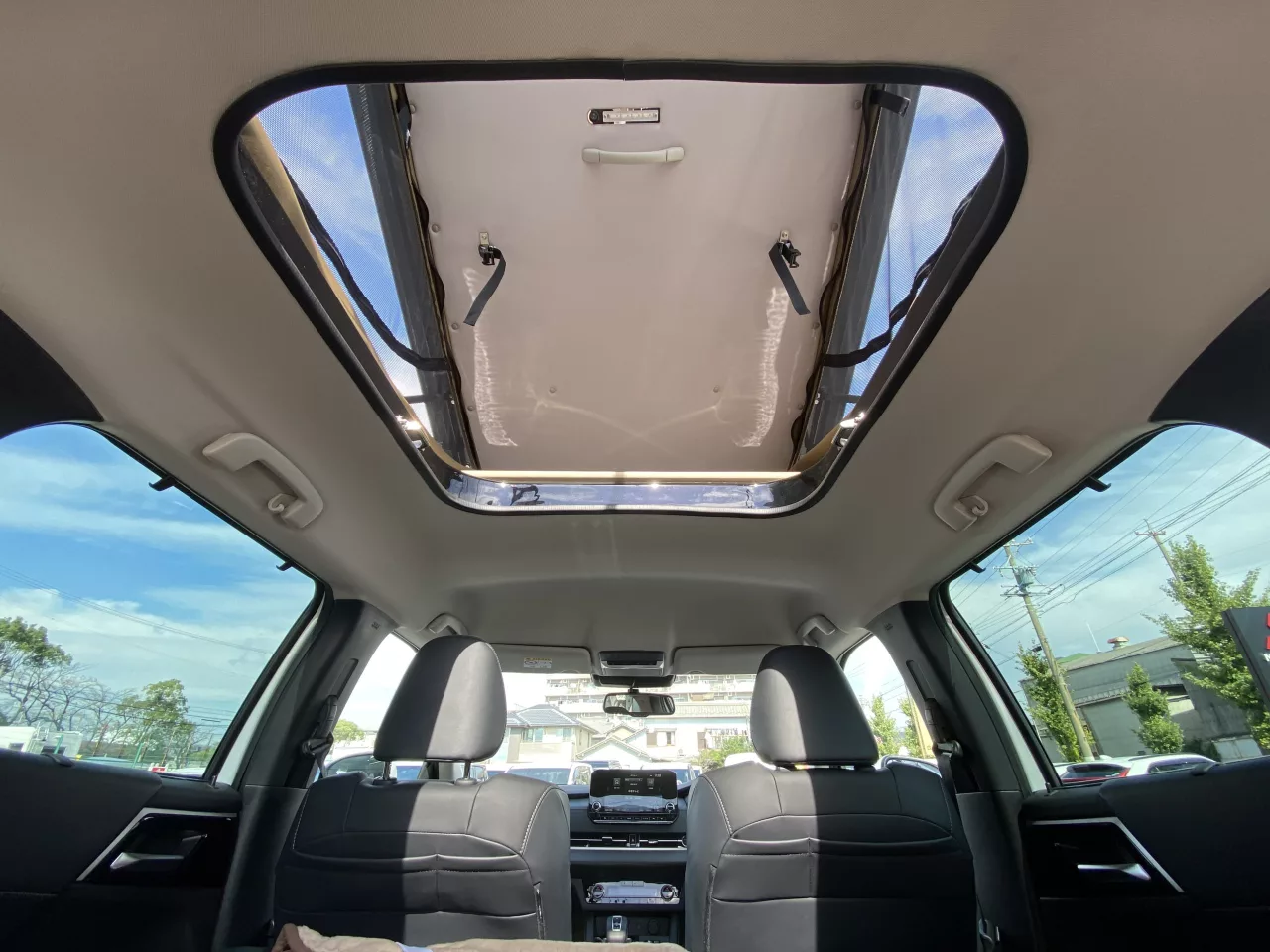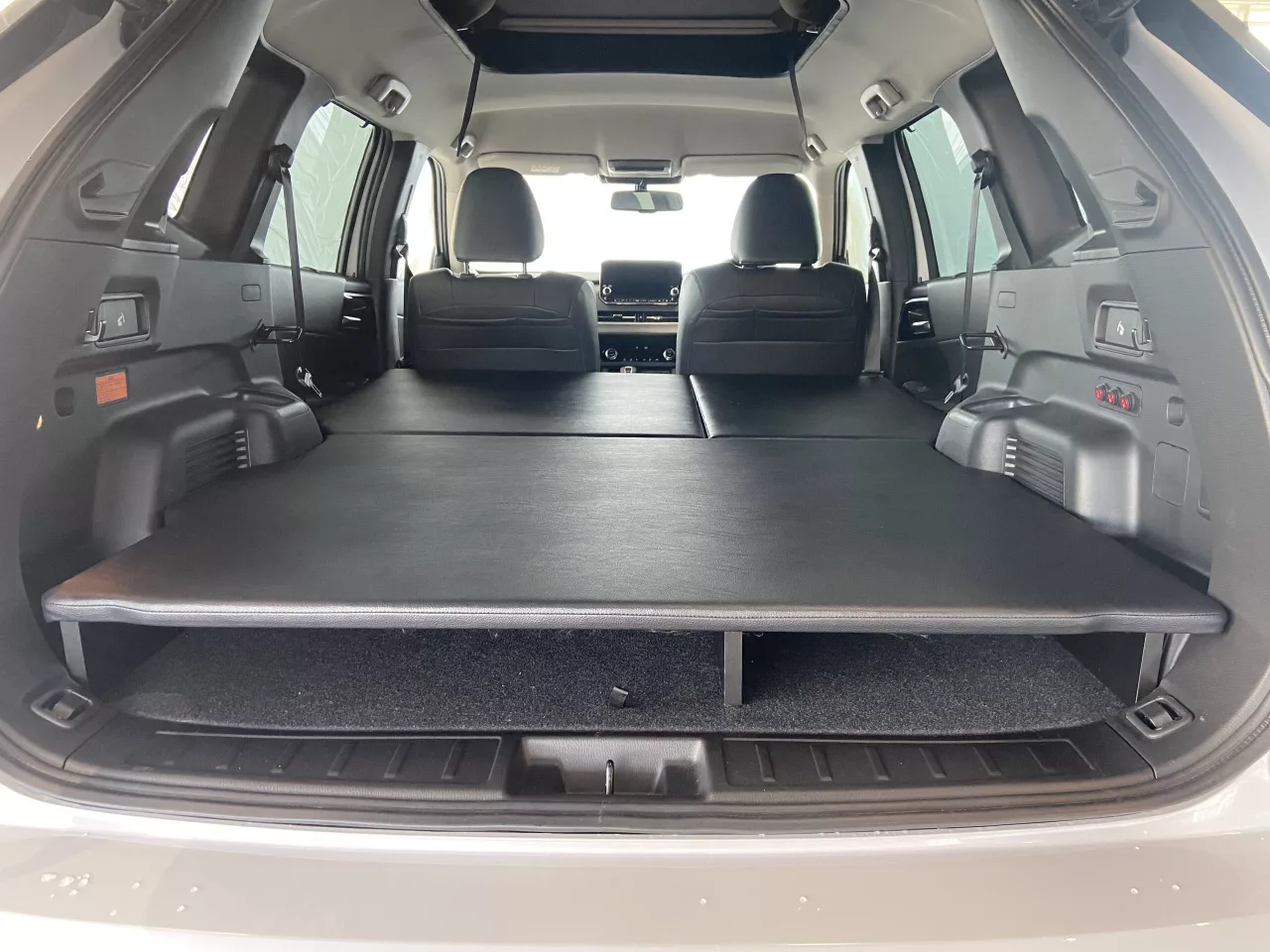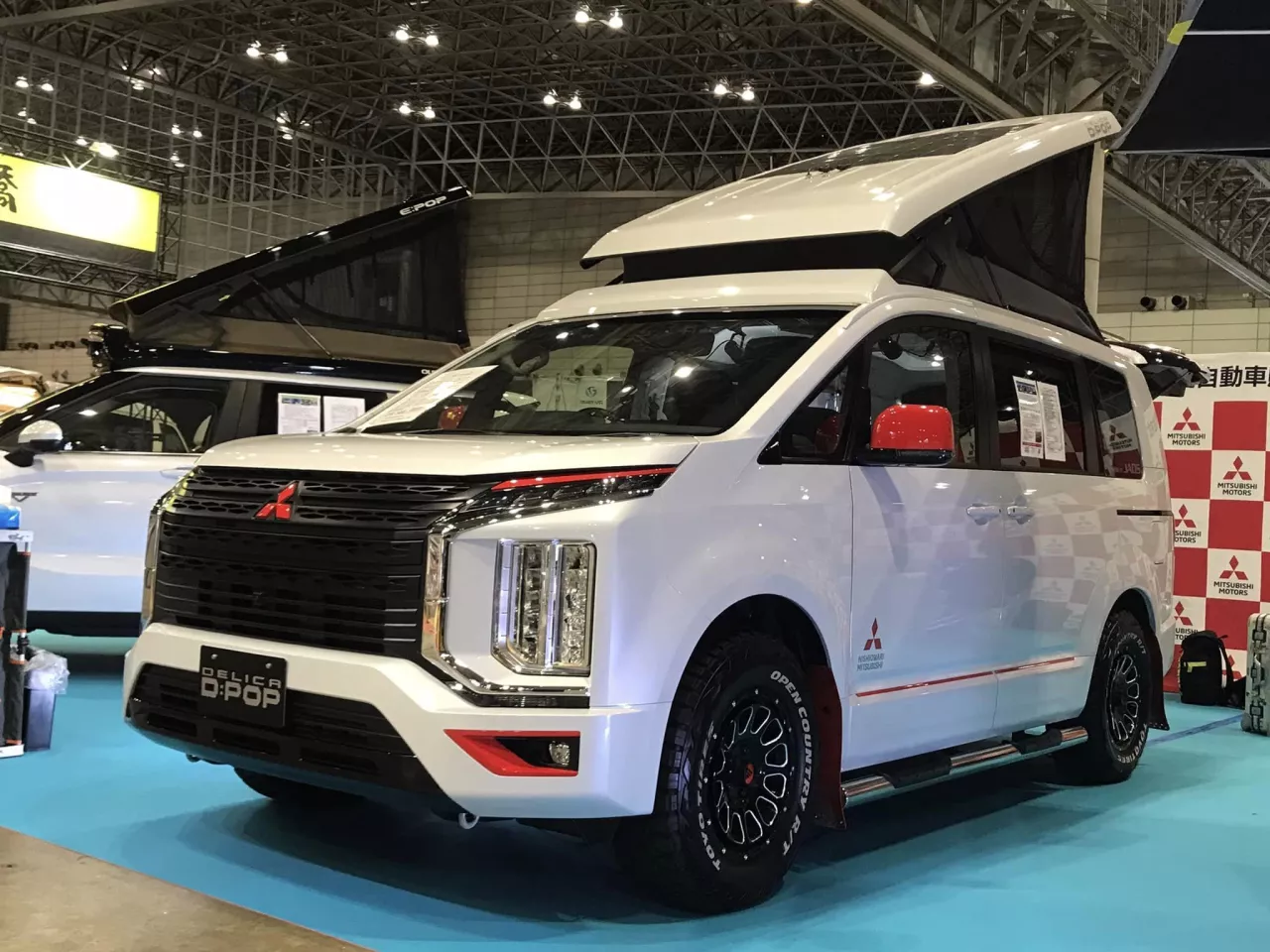Not the average Mitsubishi Outlander, or the average camper van, the Outlander PHEV E:Pop is a pop-top camper wagon that provides an efficient but long range-capable means of getting to base camp and enjoying the stay. With five or seven seats and two convertible beds, it can whisk a family of four away for a weekend of adventure in the mountains or on the coast before getting back to the city for the routine everyday commute. Its plug-in hybrid powertrain and all-wheel-drive are sure to come in handy for both.
While not the vehicle that first leaps to mind for a plug-in hybrid camper build, the Mitsubishi Outlander PHEV is an intriguingly versatile base. For the United States, Mitsubishi estimates that the all-new 2023 Outlander PHEV offers 38 miles (61 km) of all-electric range per charge, meaning plenty of zero-emissions capability for daily commuting. The gas tank then kicks in to extend that range up to 420 miles (676 km) — enough for quite a road trip, especially since it's coupled with the ability to quickly refuel at a regular, old gas station.
The Outlander PHEV's combination of 2.4-liter front engine, front motor and rear motor also powers the rally-derived S-AWC all-wheel-drive system, making the SUV a stable, capable shuttle when driving off-road or through bad weather. Its 8.3 inches (21 cm) of ground clearance help it glide over bumps.
Long story short, the Outlander PHEV could make a heck of a plug-in hybrid camper van ... if it were a van. As it is, conversion options aren't exactly numerous or clean, limited to the likes of rooftop tents (RTTs), DIY interior build-outs or simply sleeping atop the folded seats.

Over in Japan, however, there's a better option. Domestic car dealership and camper conversion shop Nishiowari Mitsubishi Motor Sales has engineered an integrated package it calls the Outlander PHEV E:Pop. Truth be told, the E:Pop's tall, black pop-up roof doesn't look all that much stealthier or neater than a standalone rooftop tent, but it certainly creates a better integrated in-vehicle camping experience than an RTT. The roof pops open just like on a typical pop-up camper van, creating more headroom inside (though not necessarily as useful given the lack of a flat floor) and a tent-top bedroom with a drop-down 72 x 41-cm (182 x 105-cm) double bed.

Nishiowari doesn't let the Outlander PHEV's cabin go to waste overnight, installing a sleeper platform into the tailgate area that combines with the folded rear seats into a 72 x 43-in (182 x 110-cm) bed. The E:Pop is thus able to comfortably sleep four people within the compact footprint of an Outlander.
The Outlander's plug-in hybrid platform offers another camping advantage that Nishiowari is eager to advertise. The 20-kWh lithium-ion battery pack can be relied upon to run the vehicle heater or air conditioner overnight, optimizing temperature for a more comfortable night of sleep. And unlike in a pure-electric vehicle, campers don't have to worry so much about draining the battery since they'll still have a tank of gas to get them on their way in the morning. Campers can also tap into the battery via the 1,500-W AC outlet for powering camping equipment and accessories.

Technically the Outlander PHEV E:Pop is a sleeper wagon or light camper, lacking the kitchen, shower, dining lounge and other amenities that would make it a full-blown camper. But the lack of permanently installed equipment also makes it a more versatile, capable everyday driver and errand runner. Close the pop-up roof, lift the rear seats back up, and the E:Pop is ready to roll as a regular five- or seven-seat SUV, albeit with a little excess weight and bulk up high. The only real disadvantage we see is that the pop-up roof doesn't include rails so owners lose the ability to load cargo up there.
Nishiowari offered an E:Pop kit for the curvier third-generation Outlander PHEV and reworked it last year for the square-jawed gen-four model Mitsubishi introduced in 2021. It is currently showing the new E:Pop camper at the 2023 Japan Camping Car Show, which opened on Friday and runs through the weekend. Full vehicle prices start at ¥5,741,100 (approx. US$43,750) for the five-seat E:Pop and ¥6,171,200 ($47,000) for the seven-seater.

Appearing alongside the Outlander PHEV E:Pop is something fun for Mitsubishi Delica lovers: a rather vibrant example of Nishiowari's Delica D:5 D:Pop camper van. The D:Pop has a similar sleeper arrangement as the E:Pop but benefits from the added flexibility of a flat van floor, which allows for an interior dining area with front swivel seats. The D:Pop doesn't have the benefit of a plug-in hybrid powertrain but does come with 4WD as standard. It starts at ¥4,913,800 ($37,450).
Source: Nishiowari Mitsubishi (Japanese)

















